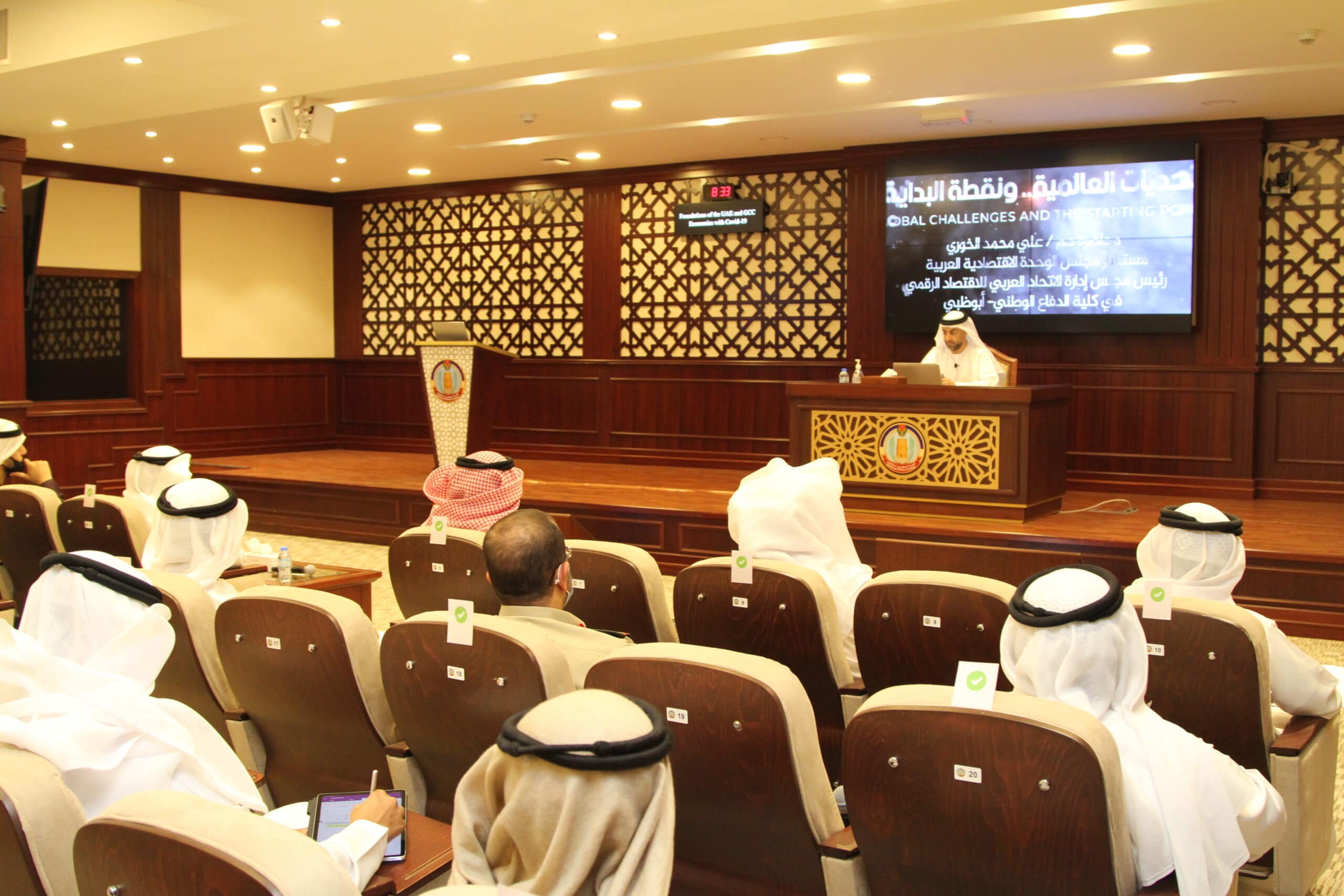
Abu Dhabi. Dr. pointed out. Ali Mohamed Al-Khouri, Advisor to the Council of Arab Economic Unity in the League of Arab States and Chairman of the Board of Directors of the Arab Federation for Digital Economy, said that the world is living in a state of cold war in light of the severe and complex economic and social challenges it is witnessing, with expectations of a decline in the importance of oil, economic conflicts and modern trends to deal with Diseases and epidemics.
This came during a lecture entitled “Economic foundations in the UAE and the Gulf Cooperation Council countries in light of the Covid-19 pandemic,” which was organized by the National Defense College in Abu Dhabi, and in the presence of His Excellency Major General / Aqab Shahin Aqab Alali, Commander of the National Defense College, and members of the college’s steering committee with the participation of a large number Of the leaders and government officials enrolled in the college’s programs.
And between Dr. Ali Al-Khouri, in his speech, pointed out that these challenges are escalating today in an unprecedented manner with the continuation of the Corona pandemic crisis and are now reflected negatively on individuals and societies in light of the increasing unemployment rates and lost jobs, which, as confirmed by international reports, have reached about a quarter of a billion full-time jobs, and high global unemployment rates to about 200 million people, and the fall of tens of millions into extreme poverty, and that these challenges represent sources of potential risks and a direct threat to the pillars of national security.
Also reviewed by Dr. Al-Khouri revealed a number of challenges facing the Arab countries and the Gulf Cooperation Council, including the growing levels of youth unemployment, and that this will extend its impact on national economies with reduced purchasing power and consumption rates, to the social costs of crime and the mental health of the unemployed community. He also referred to various challenges faced by the countries of the region, such as climate change, water shortages, food security, and the weak contribution of the non-oil sector to national economies, despite the presence of trends and strategies.
Dr. explained. Al-Khouri said that the UAE development model deserves to be stopped and benefited from. Its idea is crystallized in the belief and confidence of the political leadership that the individual and society are pivotal entry points and enablers to achieve all dimensions of sustainable development, making the development process contingent on upgrading skills, competencies and knowledge capabilities, which are the engines of the new global economy. In this context, he praised the Arab educational institutions, including the National Defense College in the UAE, describing them as one of the main production lines in the industry of the future human being.
Dr. explained. Al-Khouri said that the global and regional economic scene is pushing Arab countries to reconsider their current economic models, especially in light of the huge potential of the unified Gulf or Arab market, which can at least double Arab production capacities and the volume of exports, achieve self-sufficiency goals, and address development requirements. .
The set of recommendations made by Dr. Al-Khouri stressed the importance of policy makers in the Arab region being aware that economic reform plans must depend on regional and international integration and be based on common goals and objectives, as a means to confront the imminent risks, in addition to designing more flexible economic models based on digital transformation, and the importance that they contain policies and plans Macroeconomics includes measurable KPIs that address job requirements, market stability, and sustainable economic growth. The recommendations also indicated the need to review and amend the Arab Free Trade Agreement to include e-commerce and the digital economy in general to enable digital trade between countries and give greater attention to empowering small and medium businesses.
He also referred to the “Arab Vision for the Digital Economy” project, which was announced at the Abu Dhabi Conference in 2018, and that it represents an ambitious Arab project to unite ranks and focuses on what may bring Arab countries together of common development interests and agendas in order to reach the security and stability of the region as a whole.
finish.
| About | |
|---|---|
| Initiatives | |
| Knowledge | |
| Services | |
| Media Center | |
| Contact |